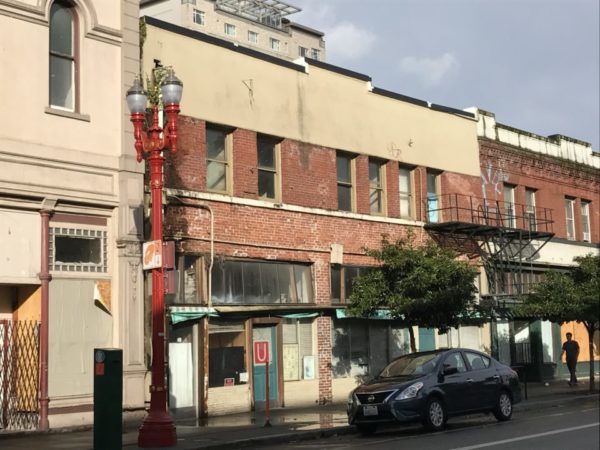With mandatory upgrades proposed, will it be enough to avoid demolition of historic buildings on a massive scale?
 Seismic retrofitting for Unreinforced Masonry Buildings (URMs) is mandated in earthquake-prone cities from San Francisco to Tokyo. In Oregon, it is not – but that may soon change. With the dire predictions of the Cascadia quake looming large, the Portland City Council will consider later this year whether to enact a set of mandatory seismic upgrade standards. Restore Oregon’s Executive Director, Peggy Moretti, has been serving on the URM Policy Advisory Committee charged with recommending those standards and setting a deadline for their implementation. It’s a daunting dilemma.
Seismic retrofitting for Unreinforced Masonry Buildings (URMs) is mandated in earthquake-prone cities from San Francisco to Tokyo. In Oregon, it is not – but that may soon change. With the dire predictions of the Cascadia quake looming large, the Portland City Council will consider later this year whether to enact a set of mandatory seismic upgrade standards. Restore Oregon’s Executive Director, Peggy Moretti, has been serving on the URM Policy Advisory Committee charged with recommending those standards and setting a deadline for their implementation. It’s a daunting dilemma.
The good news: public safety will increase and lives will be saved. The bad news: the high cost of retrofitting could result in the demolition of the beloved, iconic buildings that create our unique sense of place.
Because seismic upgrades (which can cost up to $75 a square foot) rarely generate a monetary return on investment, many owners of URMs would be unable to pay for them. Legislation has been introduced (Senate Bill 311) to help close the funding gap. It would authorize local jurisdictions to exempt commercial, industrial, and multi-family URMs from property taxes for ten years up to the full amount of the retrofit cost.
Even without a forced deadline for retrofitting, current code restrictions often trigger an upgrade if a building changes use or rehab costs hit a certain threshold. This is a major obstacle blocking the restoration of historic buildings across Oregon, from rural Main Streets to neighborhoods like St. Johns in Portland.
Retrofitted buildings provide a major public benefit, preventing loss of life and livelihood. Retaining the authentic character, embodied heritage, and rare materials of historic buildings, is also a major public benefit. So it makes sense that the cost of seismic upgrades be borne, in part, by public funding. Restore Oregon urges support for SB 311.
Some form of mandatory seismic retrofitting for Portland and other Oregon cities is on the horizon. Restore Oregon will advocate strenuously that their enactment be tied to the provision of sufficient economic tools to help pay for them.

